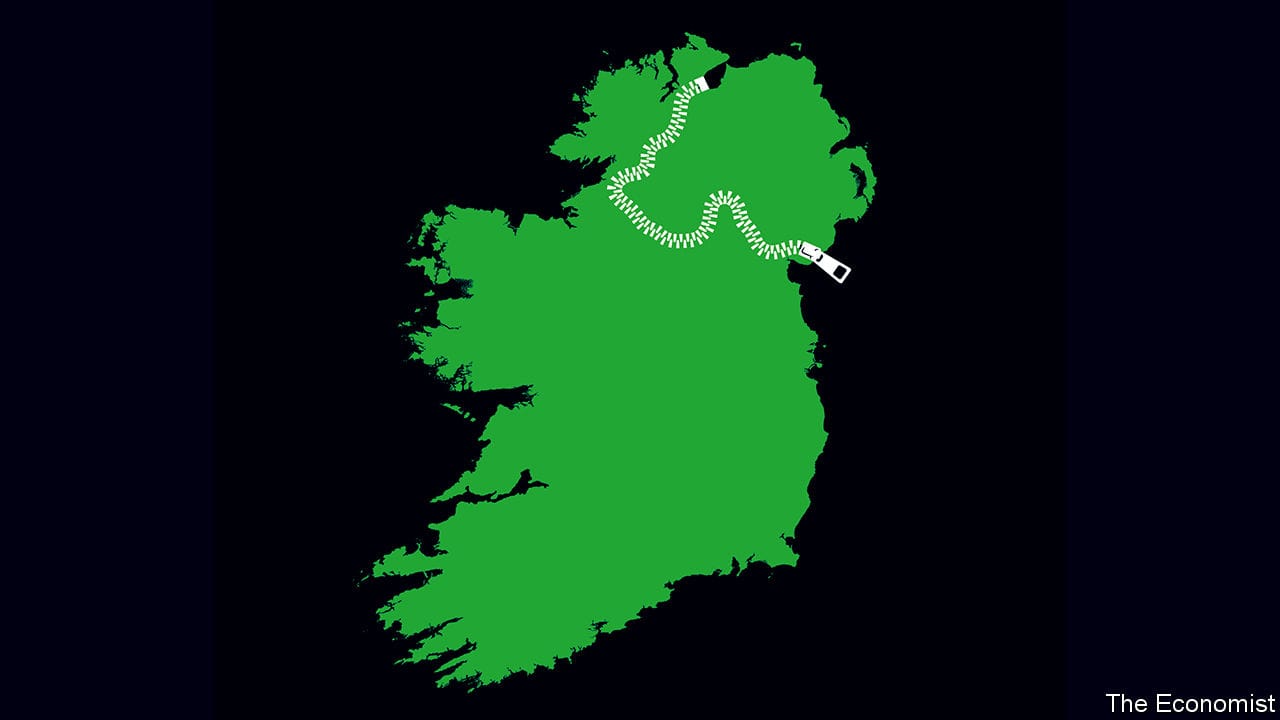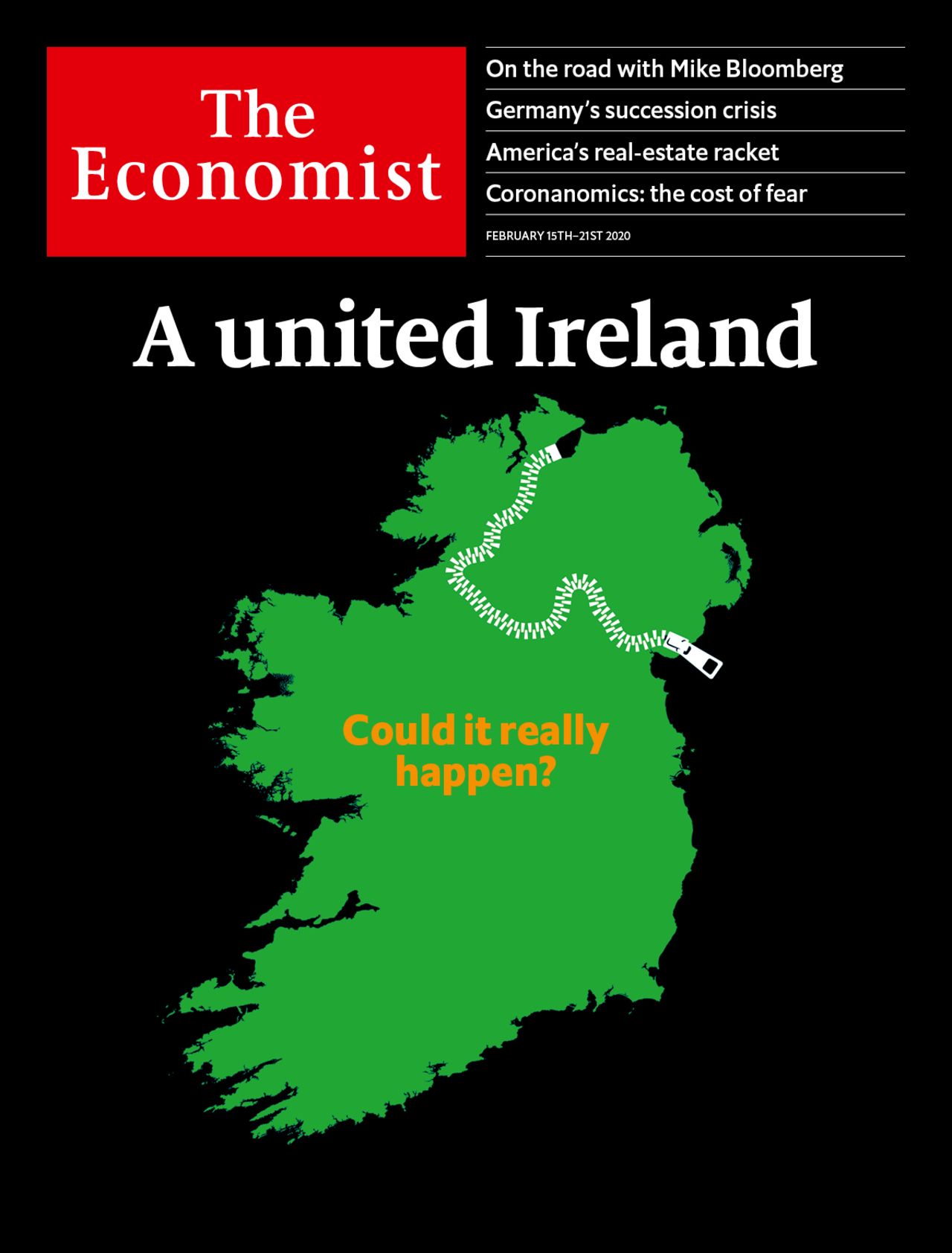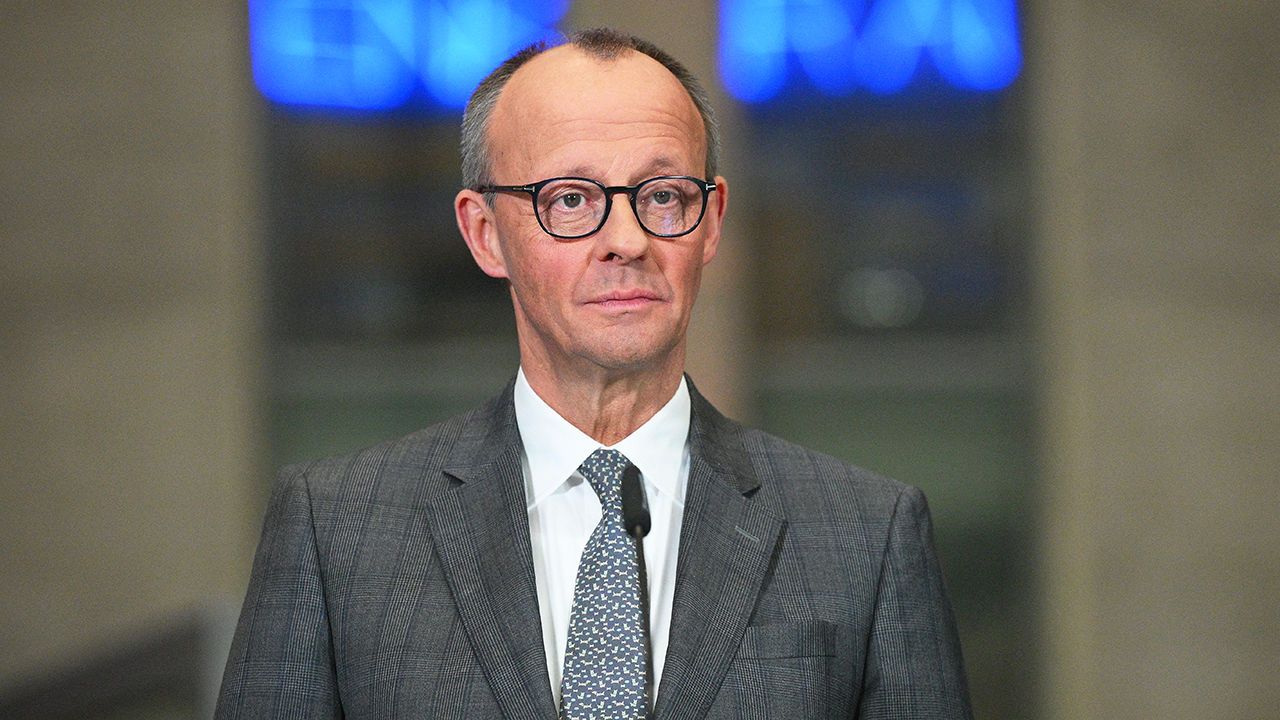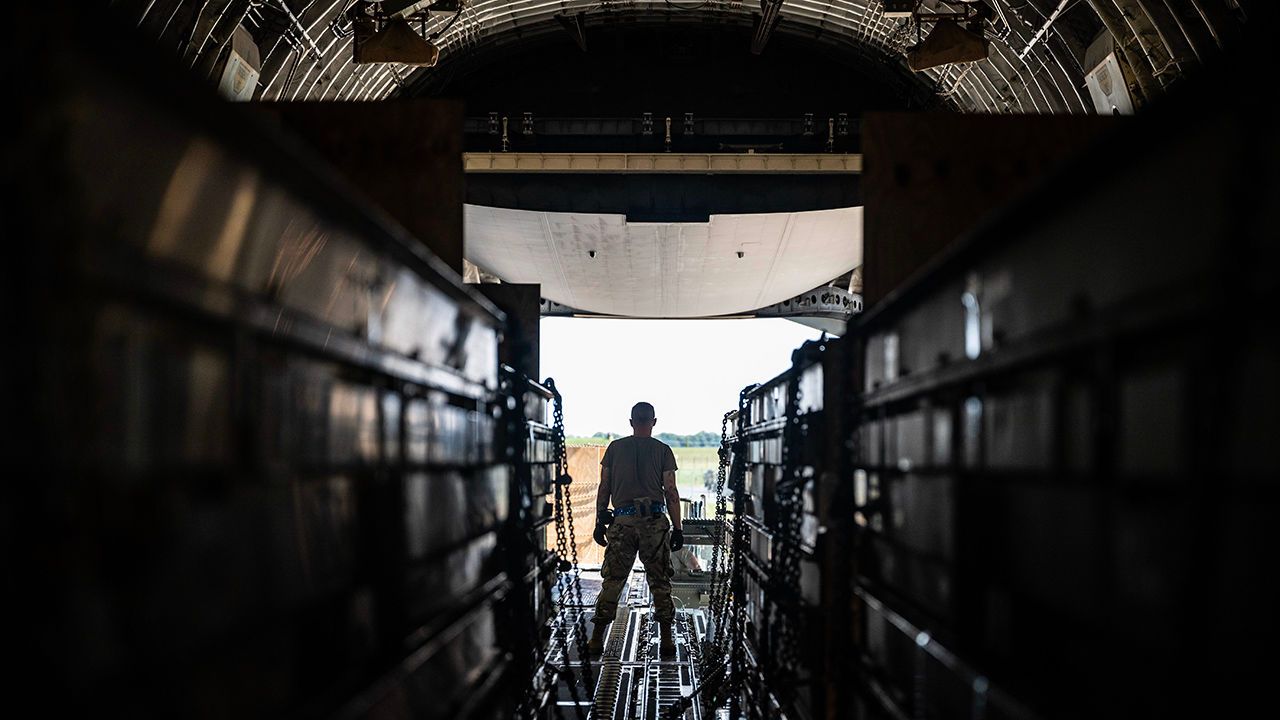Irish unification is becoming likelier
Time to start thinking about what it might mean

FOR MOST of the century since Ireland gained independence from Britain, control of the country has alternated between two parties. On February 8th that duopoly was smashed apart, when Sinn Fein got the largest share of first-preference votes in the republic’s general election. The party, with links to the Irish Republican Army (IRA), which bombed and shot its way through the 1970s, 1980s and 1990s, won with a left-wing platform that included promises to spend more on health and housing. Yet it did not hide its desire for something a lot more ambitious. “Our core political objective”, its manifesto read, “is to achieve Irish Unity and the referendum on Unity which is the means to secure this.”
This article appeared in the Leaders section of the print edition under the headline “Could it really happen?”

From the February 15th 2020 edition
Discover stories from this section and more in the list of contents
Explore the edition
A fantastic start for Friedrich Merz
The incoming chancellor signals massive increases in defence and infrastructure spending

The lesson from Trump’s Ukrainian weapons freeze
And the grim choice facing Volodymyr Zelensky

Western leaders must seize the moment to make Europe safe
As they meet in London, Vladimir Putin will sense weakness
Prabowo Subianto takes a chainsaw to Indonesia’s budget
The result? More money for the president’s boondoggles
Inheriting is becoming nearly as important as working
More wealth means more money for baby-boomers to pass on. That is dangerous for capitalism and society
Donald Trump has begun a mafia-like struggle for global power
But the new rules do not suit America








